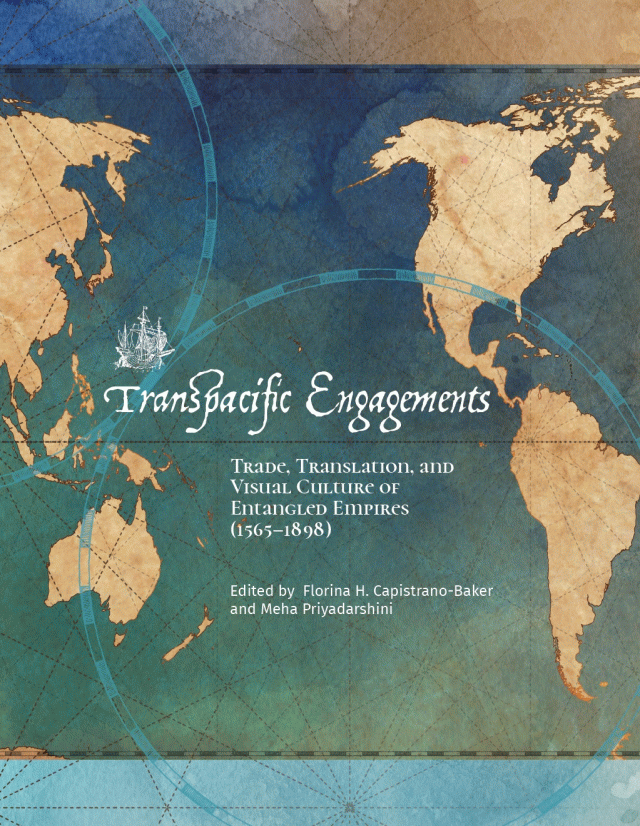
Transpacific Engagements
Trade, Translation, and Visual Culture of Entangled Empires (1565–1898)
edited by Florina H. Capistrano-Baker and Meha Priyadarshini
Transpacific Engagements: Trade, Translation, and Visual Culture of Entangled Empires (1565–1898) is a joint publication of the Ayala Foundation, the Getty Research Institute and the Kunsthistorische Institut in Florenz.
Between the sixteenth and nineteenth centuries, competing European empires, notably Spain, Portugal, Great Britain, the Netherlands, and France, amongst others, vied for commercial and political control of transoceanic networks, particularly the transpacific routes between Asia and the Americas. In its essays, the book addresses the resulting cultural and artistic exchanges with an emphasis on both the Spanish and American enterprises in the Asia-Pacific region.
A common thread in the diverse perspectives presented here is the importance of transpacific engagements to the global connections of the sixteenth century and beyond. While the focus is on the specific connection between the Asia-Pacific region (the South China Sea) and the Americas through the Philippines, it also discusses how other parts of the world, notably South and Southeast Asia and Europe, were also participants impacted by these transpacific linkages. The volume seeks to convey the complexity of entangled networks of commercial, political, and religious interests that complicate the Spanish enterprise in the Pacific. Commercial ventures into Canton and Manila by the early American republic, for example, overlapped with and later replaced the Spanish galleons. East, South, and Southeast Asian polities and dynasties remained powerful players in what were often multilateral, rather than bilateral, exchanges.
Florina H. Capistrano-Baker received a PhD, MPhil, and MA from the Department of Art History and Archaeology at Columbia University. She has received numerous grants and fellowships from Columbia University, the Asian Cultural Council, the Ford Foundation, the Japan Foundation, the American Association of University Women, the Metropolitan Museum of Art, and the Getty Research Institute. Her publications include Philippine Ancestral Gold (National University of Singapore Press and Ayala Foundation, 2011) and Philippine Gold: Treasures of Forgotten Kingdoms (Asia Society Museum and Ayala Foundation, 2015). She is formerly director of the Ayala Museum and currently consulting curator and project consultant for international operations.
Meha Priyadarshini is a lecturer (Assistant Professor) at the University of Edinburgh. She specializes in early modern global history, focusing especially on connections between Asia and Colonial Latin America. Her monograph Chinese Porcelain in Colonial Mexico: Material Worlds of an Early Modern Trade (Palgrave Macmillan, 2018) is a study of the transpacific trade connection through the production, trade, and consumption of porcelain. She completed a PhD at Columbia University and has held numerous fellowships, including one at the Getty Research Institute, as well as at the Kunsthistorisches Institut in Florenz – Max-Planck-Institut.
Published by
Ayala Foundation, Inc., Getty Research Institute und Kunsthistorisches Institut in Florenz – Max-Planck-Institut, 2021
ISBN 978-621-8028-25-8 (Hardbound)
ISBN 978-621-8028-22-7 (Softbound)


